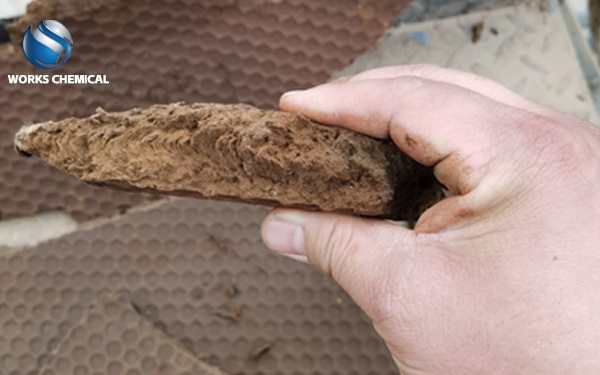
In the field of municipal sludge treatment, sludge dewatering has always been a key link. Although traditional dewatering agents have certain effects, they have many limitations. The emergence of sludge enhancers has brought a new solution to the deep dewatering of sludge.

The limitations of traditional dehydration agents
Traditional dewatering agents such as polyaluminium chloride (PAC) and polyacrylamide (PAM) mainly rely on charge neutralization and bridging effects during the sludge dewatering process to cause sludge particles to coagulate. However, its dewatering effect is limited and it is difficult to achieve deep dewatering of sludge. The moisture content of the treated sludge is usually still at a relatively high level, which not only increases the difficulty and cost of subsequent disposal but may also cause secondary pollution to the environment. Moreover, traditional agents require large dosages and have high costs. At the same time, they may produce certain chemical residues, which can affect the resource utilization of sludge.
The unique advantages of sludge enhancers
Sludge enhancers have significant advantages. It can penetrate deep into the sludge, alter the physical and chemical properties of the sludge, enhance the binding force between sludge particles, and make the sludge form a more compact structure. This structural change helps to separate water from the sludge more effectively, thereby achieving deep dewatering of the sludge. Compared with traditional dewatering agents, the sludge enhancer requires less usage and has a lower cost. Meanwhile, it is environmentally friendly, does not produce harmful chemical residues, and is conducive to the resource utilization of sludge.
The practical application effect is remarkable
In actual municipal sludge treatment projects, sludge enhancers have demonstrated outstanding performance. Taking a certain sewage treatment plant as an example, when traditional dewatering agents are used, the moisture content of the sludge after dewatering is as high as about 85%, and the treatment cost is also relatively high. After the introduction of the sludge enhancer, the moisture content of the sludge was significantly reduced to below 60%, greatly reducing the volume and weight of the sludge. This not only reduces the costs of subsequent transportation and disposal, but also provides favorable conditions for the further resource utilization of sludge. For instance, sludge that has undergone deep dewatering can be used to make organic fertilizers, building materials, etc., achieving the transformation of sludge from waste to treasure.
Sludge enhancers, with their unique advantages, are gradually replacing traditional dewatering agents in the field of municipal sludge dewatering, providing reliable technical support for achieving deep dewatering of sludge and are expected to promote the development of the municipal sludge treatment industry towards a more efficient and environmentally friendly direction.